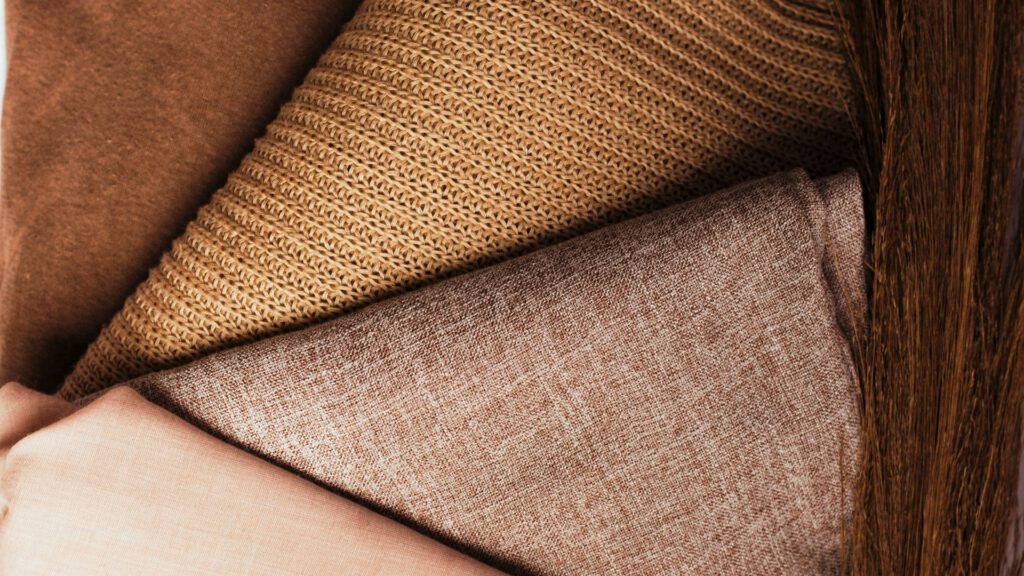Natural ways to care for clothes
- Washing your clothes too often is not good for your clothes
- Natural substitutes for washing powder
- Natural stain removal from fabric
- A natural way to get rid of pilling
- Drying laundry properly
Proper clothing care is part of the slow fashion worldview, which is conscious, sustainable fashion, the choice of high-quality clothing that suits our style, needs and lifestyle. According to slow fashion, which is far from chasing the latest trends, the quality of clothing is more important than its quantity. When we finalise a wardrobe tailored to our needs, it is worth learning how to care for clothes properly so that they serve us as long as possible instead of ending up in the trash and in landfill after some time. Unfortunately, too many items of clothing still end up in the trash. In Poland alone, around 2.5 million tons of textile waste are said to be produced annually. Instead of throwing your clothes away, it is better to learn how to deal with them.
Washing your clothes too often is not good for your clothes
While it may seem counterintuitive, washing keeps clothes fresh and fragrant, washing too often causes them to deteriorate. To properly care for your clothes, it's worth following a few simple washing rules:
- Before putting clothes in the washing machine, we close all types of zippers, buttons, Velcro fasteners and buckles, which helps prevent snagging and damaging the fabric.
- It is a good idea to turn clothes inside out so they do not pill and do not lose their color so quickly.
- Before putting clothes in the washing machine, check the labels, which should indicate the appropriate temperature for washing. A temperature that is too high will damage clothes, wash out colors, and accelerate the graying of white clothes.
- White laundry should not be mixed with light pink, light blue or other pastel colours – white laundry washed separately retains its colour purity longer,
- There are items of clothing that you don't want to wash at all, including:
- Wool – has antibacterial properties and can be washed very rarely, and if so, it is better to wash wool sweaters by hand at low temperatures,
- Silk and cashmere – it is better to wash by hand or at low temperatures and revolutions not more than 400,
- Jeans – Frequent washing at high temperatures will cause jeans to lose their color. It's better to wash them infrequently and remove any stains by hand.
Natural substitutes for washing powder
While store-bought detergents smell intense and refresh clothes relatively well, they contain phosphates, which are harmful to the environment and our skin. Too much detergent builds up on the fibers, making fabrics rough and stiff. Natural detergents , kind to allergy sufferers and the environment, and gentle on our clothes, include:
- Soap flakes made from natural potassium soap,
- Soap nuts
Natural stain removal from fabric
For stains caused by these stains, or for gray fabrics, a mixture of a little lemon juice and baking soda is best. It's an effective and environmentally friendly method that eliminates unpleasant odors.
A natural way to get rid of pilling
To prevent natural fabrics like cotton, wool, or cashmere from pilling, it's a good idea to place your clothes in the freezer overnight. Frozen fibers strengthen and pill less.
Drying laundry properly
Clothes should be taken out of the washing machine immediately after washing to prevent them from becoming too wrinkled or stale.
- Colored clothes should not be dried in the sun – they lose their color intensity,
- Heavy wool or cashmere sweaters are best dried flat on a towel to avoid stretching and deforming the garment.
- Shirts should be dried on hangers.
The longer our clothes last and look good, the better it is for the environment and our budget. If we try to wash less frequently and at lower temperatures, our clothes will look like new for longer, significantly reducing water consumption and the release of microplastics from synthetic fabrics into the seas and oceans.
THE PUBLISHER'S CHOICE
Dried plums 1 kg BIOGO
- £6.07
- £6.07
- Prezzo unitario
- / per
Dried White Mulberries 500 g ORGANIC
- £5.06
- £5.06
- Prezzo unitario
- / per
Almonds 1 kg BIOGO
- £10.13
- £10.13
- Prezzo unitario
- / per
Cranberries sweetened with apple juice organic 1 kg BIOGO
- £14.19
- £14.19
- Prezzo unitario
- / per
Dried dates 1 kg BIOGO
- £3.65
- £3.65
- Prezzo unitario
- / per
Unpeeled buckwheat groats 1 kg BIOGO
- £2.44
- £2.44
- Prezzo unitario
- / per
Walnuts 800 g BIOGO
- £7.50
- £7.50
- Prezzo unitario
- / per
Peeled sunflower seeds 1 kg BIOGO
- £2.63
- £2.63
- Prezzo unitario
- / per
PULLED ORGANIC SUNFLOWER SEEDS 1 KG BIOGO
- £3.85
- £3.85
- Prezzo unitario
- / per












































































































































